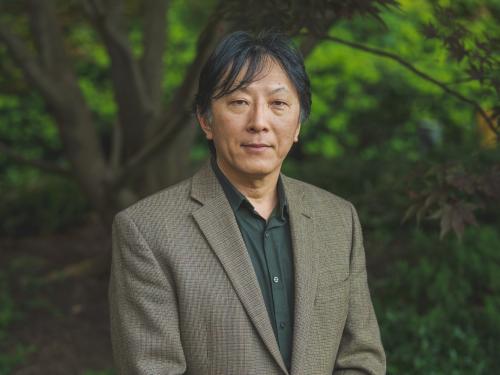
Katsuhiko Murakami, professor of biochemistry and molecular biology at Penn State, has been selected as a member of the 2023 class of Innovation Fund investigators by the Pew Charitable Trusts, a national philanthropy organization based in Philadelphia. The 12 members of the new class — all alumni or advisors of Pew’s biomedical programs — will partner on interdisciplinary research projects exploring key questions in human biology and disease.
“An interdisciplinary approach to research is critical to uncovering scientific breakthroughs and making lasting change,” said Donna Frisby-Greenwood, senior vice president for Philadelphia and scientific advancement at The Pew Charitable Trusts. “Pew is thrilled to support this exceptional group of investigators, whose collective efforts will help move the needle in important areas of health and medicine.”
Murakami, who was named a Pew biomedical scholar in 2005, will partner with Gene-Wei Li, associate professor of biology at the Massachusetts Institute of Technology who was named a Pew biomedical scholar in 2017. They will study a critical step in the regulation of gene expression in cyanobacteria. Cyanobacteria inhabit a wide range of environments and are responsible for a majority of Earth’s carbon fixation, drawing out carbon from inorganic molecules for photosynthesis and producing oxygen as a byproduct. These bacteria played an important role in the evolution the Earth’s atmosphere and ecosystem by introducing oxygen during a period called the Great Oxidation Event. Cyanobacteria can also produce cyanotoxins, which can cause illness in humans and livestock when present in drinking water.
Murakami and Li will specifically study the process of transcription termination, a key step in cyanobacteria gene regulation that tells the cell when to stop converting genetic information from DNA to RNA — the molecular instructions for producing proteins. While the mechanisms behind transcription termination are well known in some model bacteria, the details of this process in cyanobacteria are still largely unknown. The pair will draw on Murakami’s expertise in structural biology and Li’s knowledge of transcription regulation to better understand this process. Their work could yield new scientific approaches used to study cyanobacteria, photosynthesis-promoting plant cells, and other bacterial groups.
More broadly, Murakami’s research is centered on understanding the mechanism of gene expression — the fundamental process of how the genetic code is used in cells — which is critical to development and to understanding diseases in all organisms. He is particularly interested in how information stored in genomic DNA is transcribed into RNA by the enzyme RNA polymerase, the first step and the key control point in gene expression and one of the most fundamental processes required for life. His laboratory applies X-ray crystallography and cryo-electron microscopy techniques to reveal three-dimensional structures of bacterial, archaeal, and bacteriophage RNA polymerases for elucidating the mechanisms of RNA transcription and its regulation as well as investigating the mechanism of antibiotic action targeting bacterial RNA polymerase.
Murakami was named a fellow of the American Association for the Advancement of Science (AAAS) in 2020. He is a member of the American Society for Biochemistry and Molecular Biology, the American Crystallographic Association, the Biophysical Society and the American Society for Microbiology. Murakami is a faculty director of Cryo-Electron Microscopy Facility and interim director of the Center for Structural Biology in the Penn State Huck Institutes of the Life Sciences.
Prior to joining the faculty at Penn State, Murakami was a postdoctoral research fellow and research associate at The Rockefeller University from 1998 to 2003. He also was a postdoctoral researcher at the National Institute of Genetics in Japan from 1997 to 1998. He earned a bachelor’s degree in chemistry in 1992 and a master’s degree in chemistry in 1994 at the Yamaguchi University in Japan. He earned a doctoral degree in genetics at The Graduate University for Advanced Studies in Japan in 1997.